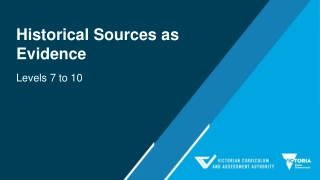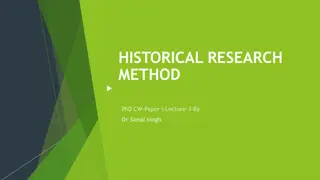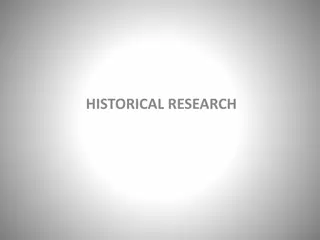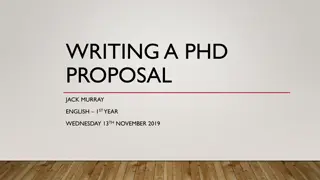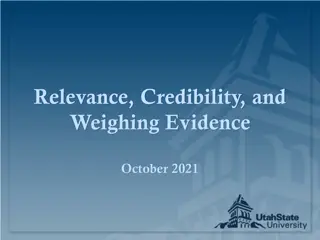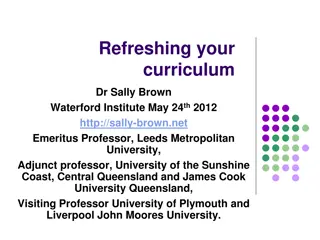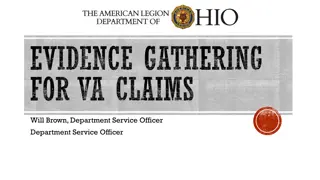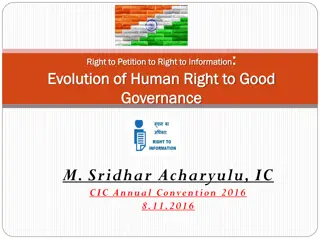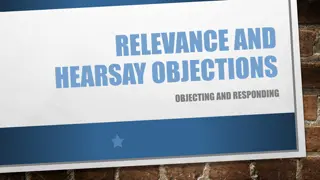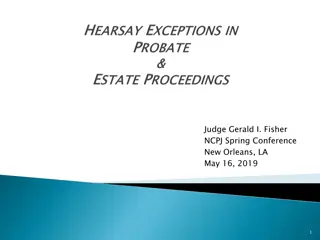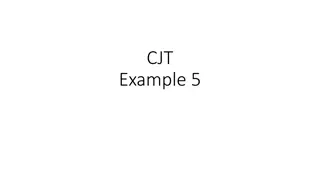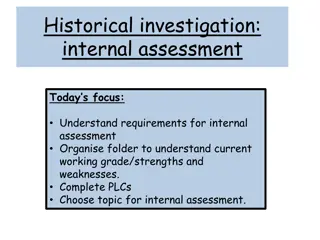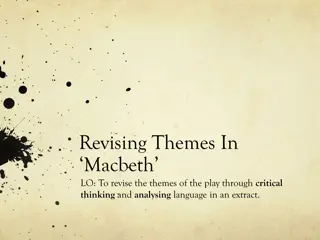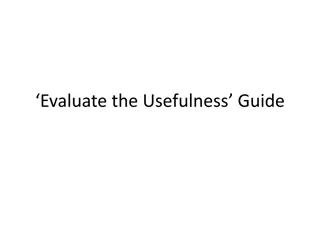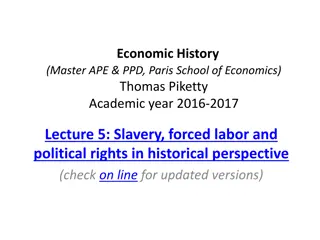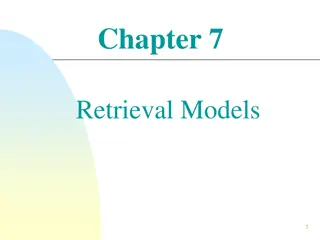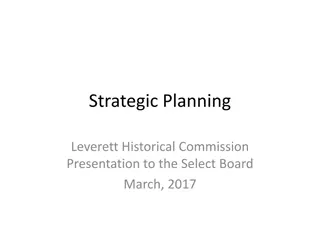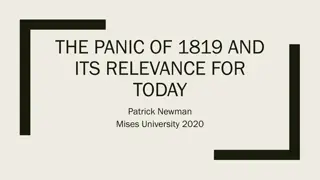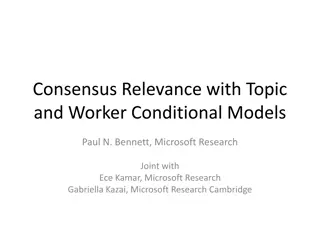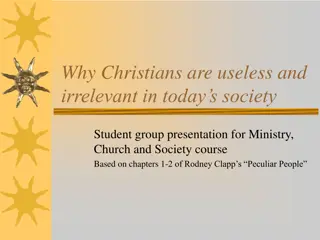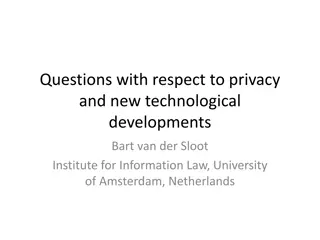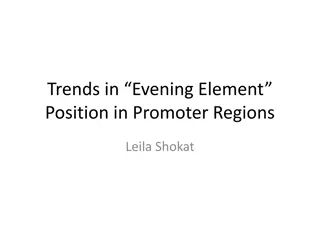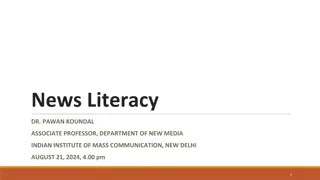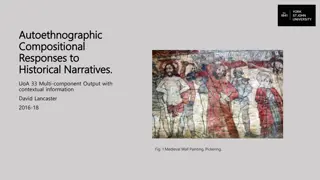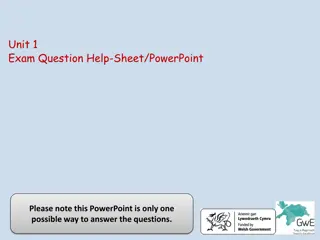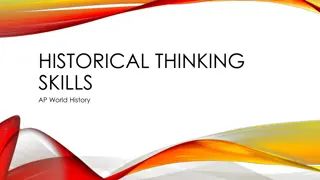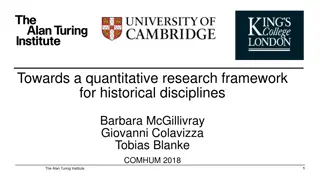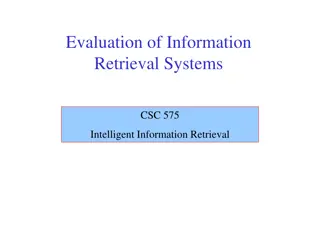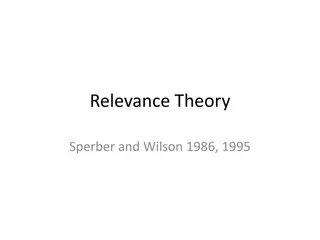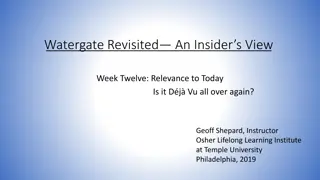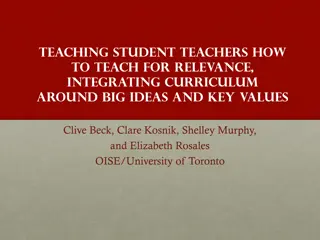Historical Sources as Evidence
Explore the importance of historical sources as evidence in the Victorian Curriculum History context, focusing on how students analyze, evaluate, and utilize sources to create historical explanations and arguments. Discover the significance of primary and secondary sources, perspectives of historica
1 views • 46 slides
Challenges and Solutions in Implementing Historical Competencies in Teaching
Explore the complexities and obstacles faced in implementing historical competencies in teaching, as discussed by Jens Aage Poulsen, a senior lecturer and researcher at HistoryLab, University College Lillebaelt, Denmark. The content delves into competence-based curriculum, core historical competenci
0 views • 7 slides
Understanding Gramsci's Political Theory and its Relevance Today
Gramsci's political theory, focusing on concepts such as hegemony, historical bloc, and the role of intellectuals, offers valuable insights into contemporary political challenges. Explored through the lenses of Prof. Ken Spours and Stuart Hall's analytical tradition, this analysis sheds light on Con
0 views • 13 slides
Understanding Historical Research Methods
Historical research is a systematic approach to investigating past events, developments, and experiences. It involves critical examination of evidence, interpretation of sources, and tracing of historical trends to gain insights into social changes. Various definitions by scholars like Kerlinger, Wh
1 views • 21 slides
Understanding Historical Research: Methods, Purposes, and Aims
Historical research involves investigating past events systematically to provide a dynamic explanation, interpretation, and understanding of the past. It aims to uncover unknown aspects, answer unexplored questions, and link past happenings to the present to enrich human culture and encourage interd
0 views • 20 slides
Mastering the CRAAP Test for Evaluating Information Online
Understand the importance of evaluating online information using the CRAAP Test. Developed by the Meriam Library at California State University Chico, this test focuses on Currency, Relevance, Authority, Accuracy, and Purpose. Learn to assess the timeliness, reliability, and relevance of sources to
2 views • 57 slides
Relevance and Limitations of Marx's Capital in Modern Social Theory
Exploring the ongoing relevance of Marx's Capital in contemporary social theory, Gary Herrigel from the Department of Political Science discusses its implications and theoretical considerations. Despite its foundational role, Marx's work also faces practical limitations, such as the challenge of tra
3 views • 14 slides
Exploring Attention and Relevance in English PhD Research
Delve into the dynamics of attention and relevance within English research through a comprehensive and structured exploration. Uncover the impact, originality, and unique value of your study amidst existing literature, ultimately aiming to contribute meaningfully to the field. Embrace the challenges
0 views • 11 slides
Global Relevance and Redundancy Optimization in Multi-label Feature Selection
The study focuses on optimizing multi-label feature selection by balancing global relevance and redundancy factors, aiming to enhance the efficiency and accuracy of data analysis. It delves into the challenges posed by information theoretical-based methods and offers insights on overcoming limitatio
0 views • 15 slides
Understanding Relevance, Credibility, and Weighing Evidence in Decision-Making
Explore the importance of relevance and credibility in evidence assessment, the role of hearing panels in evaluating evidence fairly, and the responsibilities they hold. Learn about presenting relevant evidence, policy analysis, and identifying irrelevant evidence to ensure a thorough review process
6 views • 32 slides
Enhancing Curriculum Relevance and Student Engagement in Higher Education
Reviewing and updating academic programmes to ensure curriculum relevance, active student engagement, appropriate assessment strategies, and effective use of technology to support learning. Considerations include international competition, student diversity, technological advancements, student feedb
1 views • 34 slides
Understanding Evidence Gathering for VA Claims with The American Legion Department of Ohio
Evidence is crucial for VA claims, and it can come in various forms such as documents, written statements, photos, and video recordings. The framework for evaluating evidence includes factors like relevance, competence, credibility, and weight. Understanding the types of evidence, forms of relevance
0 views • 14 slides
Evolution of Human Right to Good Governance through Petition and Information
Explore the historical evolution of human rights focusing on the connection between the right to petition, right to information, and good governance. Delve into how the relationship between governors and the governed has changed over time, from the Magna Carta to modern times, highlighting the signi
1 views • 38 slides
Understanding Relevance Rules in Legal Testimony
Relevant testimony in a legal case is crucial as it can impact the probability of important facts. However, objections related to probative value, unfair prejudice, and confusion of issues can lead to exclusion of evidence or testimony. Unfair prejudice specifically applies to defendants, while char
0 views • 26 slides
Understanding Hearsay Rules and Exceptions in Legal Proceedings
Hearsay evidence, which is an out-of-court statement introduced for the truth of its content, is considered less reliable in court due to factors like lack of oath, inability to see demeanour of declarant, and absence of cross-examination. Various historical judgments and legal exceptions allow cert
0 views • 90 slides
Clinical Judgement Test: Research Question Relevance and Study Design Assessment
This document presents a Clinical Judgement Test focusing on the relevance of a research question and the appropriateness of the study design. Candidates are evaluated on their critical review skills and ability to assess both strengths and weaknesses of the research methodology employed. The test a
0 views • 12 slides
Requirements for Historical Investigation Internal Assessment
Understand the 25% weightage internal assessment comprising 3 sections for a historical investigation. Focus on source evaluation, investigation, and reflection within a 2,200-word limit. Choose a historical topic, analyze primary and secondary sources, and consider causation, consequence, continuit
0 views • 18 slides
Evaluation of PNIN Phase I: Preliminary Results and Research Questions
This article discusses the evaluation of Phase I of the PNIN project, focusing on relevance, coherence, efficacy, impact, and sustainability. It explores the approach, methodology, research questions, and revised Theory of Change. The study aims to assess the performance of PNIN, potential changes n
0 views • 17 slides
Exploring Themes in Shakespeare's Macbeth: Critical Analysis and Reflection
Delve into the themes of blood, night, and sleep in Shakespeare's Macbeth through critical thinking and language analysis. Understand the significance of these recurring words in the play, ponder on the universal themes presented, and consider the contextual relevance of Shakespeare's thematic explo
0 views • 16 slides
Historical and Prophetic Insights from Scripture
Explore historical events from the books of 2 Kings, 2 Chronicles, Ezra, Nehemiah, and prophetic books like Isaiah, Jeremiah, Ezekiel, and more. Uncover the relevance of Cyrus' prophecy and the impact of Isaiah's writings on biblical history. Delve into the significance of the BASF Foundation in und
0 views • 20 slides
Evaluating the Usefulness of a Historical Source on Slave Treatment
This guide provides assistance on how to evaluate the usefulness of a historical source regarding the treatment of slaves on the Middle Passage. It includes steps to analyze the source's credibility, relevance, and limitations in providing insights on this subject.
0 views • 23 slides
Understanding Historical Context in Skills Development Discourses
Exploring the evolution of apprenticeship and skills development through historical sociology, historical futures, modes of justification, and complexity concepts. Emphasizing the importance of nuanced historical understanding to navigate contemporary challenges in South Africa's skills development
0 views • 29 slides
Historical Perspective on Slavery: Impact and Relevance
Explore the historical context of slavery, from Ancient Greece and Rome to the pre-1860 Southern US, and its long-term implications on societies. Delve into the debates on compensation, racial discrimination, and the comparison with debt and serfdom, shedding light on the continuum between slavery a
0 views • 51 slides
Understanding Retrieval Models in Information Retrieval
Retrieval models play a crucial role in defining the search process, with various assumptions and ranking algorithms. Relevance, a complex concept, is central to these models, though subject to disagreement. An overview of different retrieval models like Boolean, Vector Space, and Probabilistic Mode
0 views • 56 slides
Leverett Historical Commission Strategic Planning Presentation Overview
Leverett Historical Commission identifies issues with ad hoc requests, lack of clarity on historical property significance, and inadequate maintenance plans. A strategic plan is needed to define assets, determine significance, create guidelines, prioritize restoration efforts, and establish funding
0 views • 9 slides
The Panic of 1819 and its Relevance Today - A Historical Analysis
The presentation delves into the significant yet overlooked Panic of 1819, caused by the Second Bank of the United States' credit expansion and intense cronyism. It explores the impact on free market thinking, the revival of Antifederalism, and the formation of the Jacksonian coalition. Drawing para
0 views • 19 slides
Consensus Relevance with Topic and Worker Models
Study focuses on recovering actual relevance of a topic-document pair using noisy predictions from multiple labelers. Various supervised, semi-supervised, and unsupervised approaches are explored. The goal is to obtain a more reliable signal from the crowd or benefit from scale through expert qualit
0 views • 15 slides
Reevaluating the Relevance of Christians in Today's Secular Society
The presentation explores the diminishing relevance of Christians in contemporary society, attributing it to sentimental attachment and the legacy of Constantinianism. It delves into the concept of the Church as "unchurch" and challenges the traditional notions of Christian influence. The evolving r
0 views • 15 slides
Transforming ChildFund: Solving Brand Challenges in Advocacy Sector
ChildFund, facing challenges as an undifferentiated brand in a competitive advocacy sector, is focusing on distinctiveness, relevance, trust, pervasiveness, and consistency in brand development. By emphasizing relevance and brand attributes, they aim to increase grants, partnerships, and fundraising
1 views • 26 slides
Privacy and New Technologies: Questions on Personal Data Relevance and Regulation
Explore the relevance of personal data in today's technology-driven world, questioning its impact on privacy and regulation. Delve into the challenges of regulating data gathering, access, and usage while considering the evolving landscape of privacy responsibilities in product development.
0 views • 9 slides
Biologically Important Evening Element in Promoter Regions: Insights from Research by Leila Shokat
The research explores the significance of the Evening Element as a motif in gene promoter regions regulated by CCA1. Understanding the importance of motif positions in promoters reveals insights into gene regulation and biological relevance. The study highlights the relevance of consistent motif pos
0 views • 6 slides
Understanding the Characteristics of News and News Literacy
News plays a vital role in informing, shaping opinions, and influencing decision-making. This article explores the characteristics of news including objectivity, timeliness, relevance, proximity, and impact. Objectivity ensures unbiased reporting, timeliness focuses on recent events, relevance targe
0 views • 35 slides
Exploring Historical Narratives through Music and Art
This submission presents two original compositions that delve into historical narratives through a unique blend of music and visual art. The compositions aim to reinterpret stories from the past, creating innovative structures and forms. By intertwining various perspectives and utilizing cinematic t
0 views • 8 slides
Historical Source Analysis Exam Questions Overview
The provided content outlines exam questions related to historical sources, guiding students on analyzing, evaluating, and interpreting information from different sources. The questions cover a range of topics such as learning from sources, assessing accuracy, understanding significance, and making
0 views • 12 slides
Developing Historical Thinking Skills in AP World History
AP History classes aim to cultivate apprentice historians by fostering historical thinking skills (HTS). These skills include Chronological Reasoning, Comparison and Contextualization, Crafting Historical Arguments, and Historical Interpretation. Each skill set equips students with the ability to an
0 views • 15 slides
Quantitative Research Framework for Historical Disciplines
Scholarly communities in historical disciplines are combining quantitative and qualitative methods to study phenomena that change over time. The proposed general methodological reflection aims to enhance research in historical linguistics through quantitatively driven models and claims. Quantitative
0 views • 18 slides
Evaluation of Information Retrieval Systems and User Satisfaction
Information Retrieval Systems are evaluated based on aspects like query assistance, speed, resources, and relevancy. Measuring user satisfaction often relies on the relevance of search results, which requires benchmark collections, query suites, and binary relevance assessments. Human-labeled corpor
0 views • 24 slides
Understanding Relevance Theory: Sperber and Wilson's Approach
Relevance Theory, introduced by Sperber and Wilson in 1986, aims to explain how propositions are understood without relying on mutual knowledge. It addresses deixis, ellipsis, vagueness, and ambiguity while exploring implicatures and providing a general theory of communication beyond just verbal int
0 views • 38 slides
Trump vs Nixon: Parallels and Contrasts in Political History
Delve into the striking similarities and differences between President Trump and President Nixon in the context of historical events such as Watergate. Explore the actions of special prosecutors, challenges faced by both leaders, and the impact of political climate and media on their presidencies. R
0 views • 21 slides
Teaching Student Teachers for Relevance & Integration
Explore how teachers can integrate curriculum around big ideas and key values to teach for relevance. Learn about the findings of a longitudinal study on teacher practices and the importance of balancing traditional content with real-world understanding. Discover the significance of integrating teac
0 views • 18 slides
